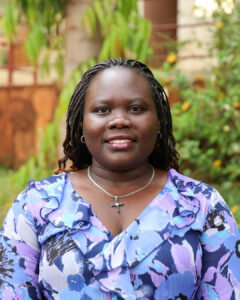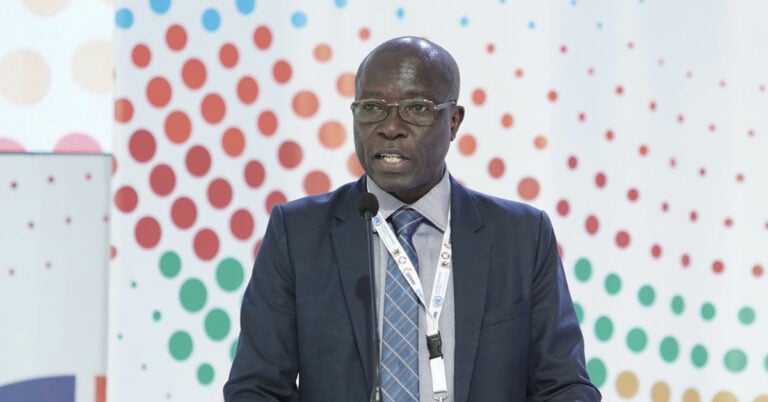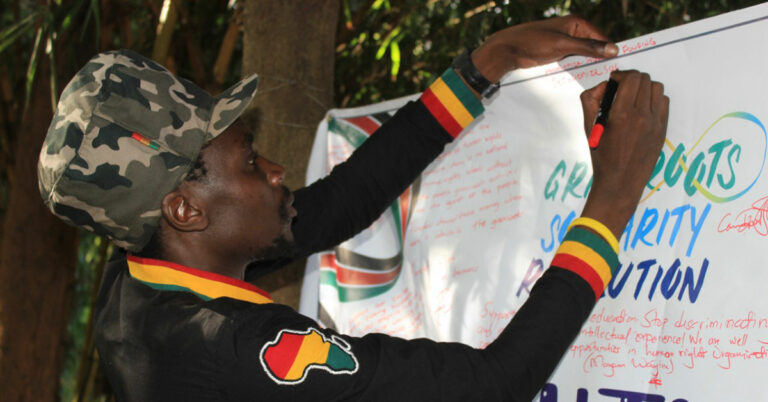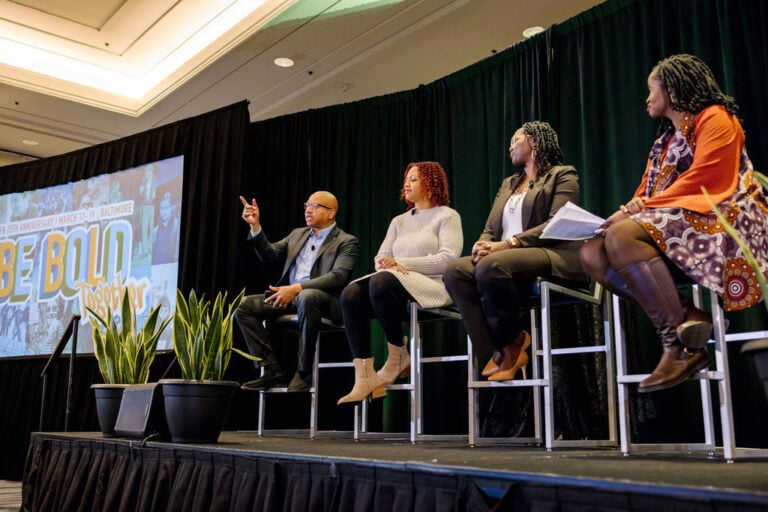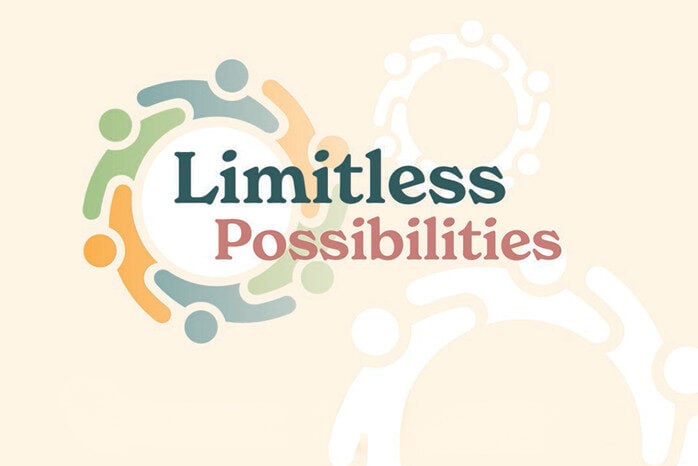As part of Fund for Shard Insight’s global engagement work, we asked CIVICUS, an alliance of civil society organizations worldwide, to host a conversation with grassroots activists, so we and our funder partners could hear firsthand what they see as philanthropy’s role in supporting locally-led development.
How can U.S.-based international donors be good allies? What concrete approaches are worth supporting, scaling, or replicating?
Three inspiring changemakers — Banesa Farfan, Naomi Ayot Oyaro, and Naro A. — shared their experiences and perspectives to help answer those questions and more.
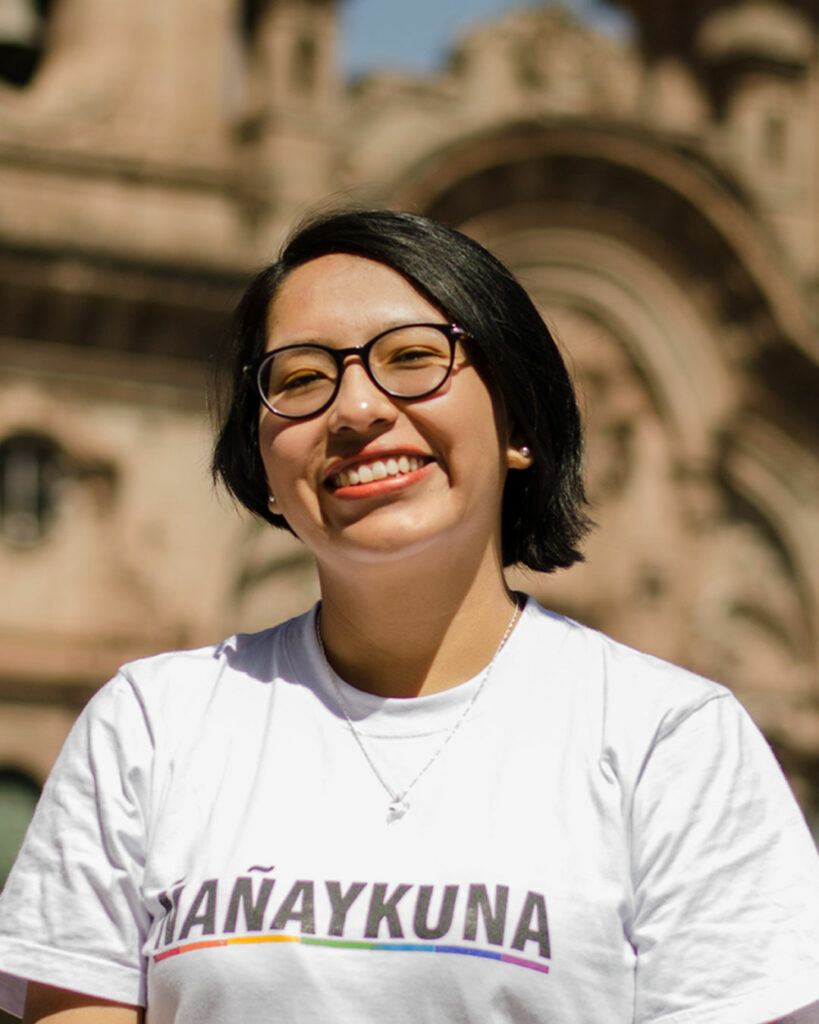
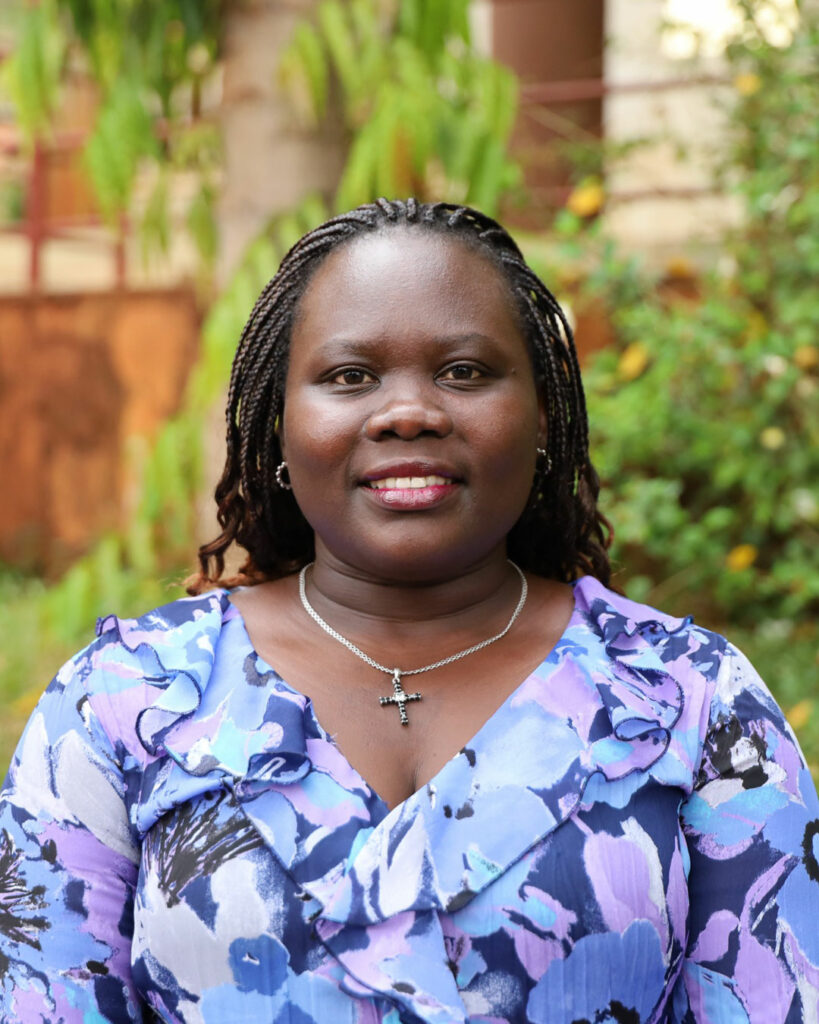
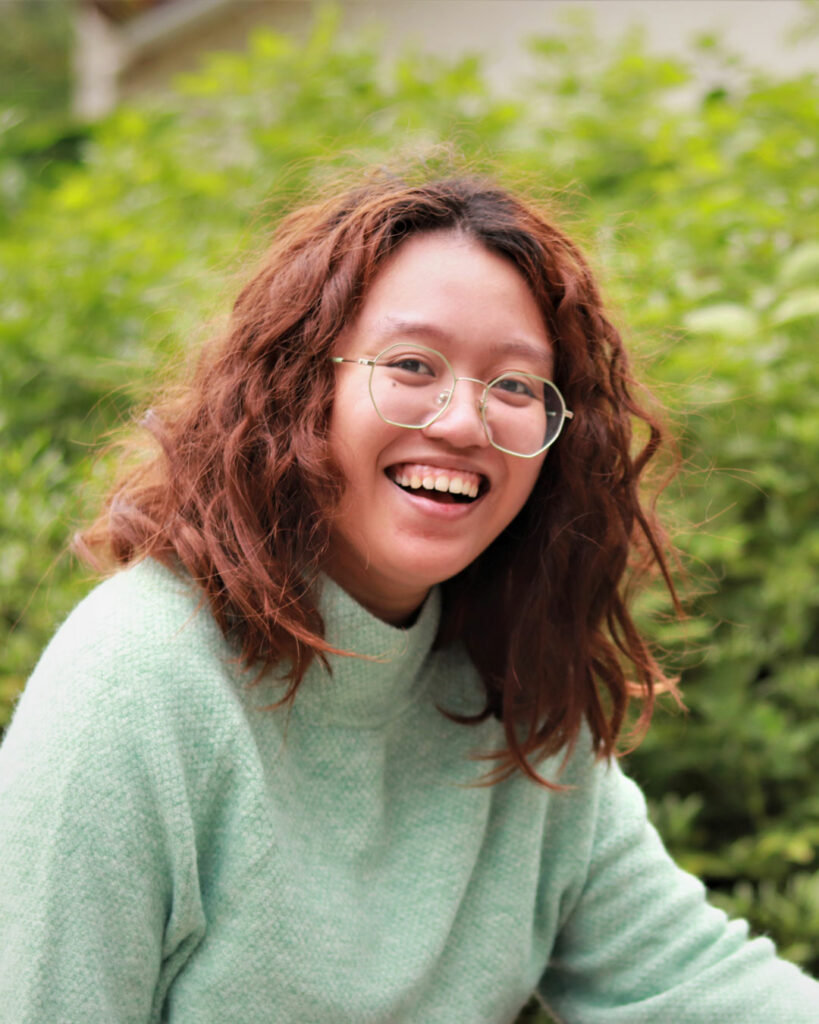
The following are excerpts from the webinar featuring the three international activists, along with Clara Bosco, the moderator from CIVICUS. Content was edited in partnership with the speakers for length and clarity. Some remarks are translated from Spanish.
HOST: CLARA BOSCO
Please share one example of either a positive funder practice or some Majority World-driven solution that you might have either directly experienced or that you came across. Perhaps, please also explain which specific challenge this practice or this solution might have helped to overcome, especially thinking about locally-led development.
Naro A.
In 2023, a group of funders visited the Philippines to facilitate needs assessments focusing on the mental health of defenders. The process involved co-designing with local partners, and involved a series of dialogues through national and regional gatherings. These were mostly led by local activists from diverse movements, different regions, and speaking different languages. In these local immersions, funders were exposed to the psychosocial realities of defenders, including the limitations and barriers of existing funding practices.
One barrier identified was how funders’ due diligence assessments and risk management practices are actually being hijacked by mechanisms of political repression. For example, how registration requirements and certain financial disbursements prevent access or increase security risk and surveillance to defenders working from remote and marginalized communities. Areas such as mental health and wellbeing are also not typically supported or considered in the reporting or MEL (monitoring, evaluation, and learning) processes, which reveals how existing methodologies in funding need to be more trauma-informed, care-born, activist-centered, anti-colonial, and anti-extractivist.
Another issue raised by some grassroots defenders is elite capture or the advantage of the elites, where funders work with a very familiar group of people who are actually advantaged already, which makes it difficult for non-registered, informal, or non-English speaking defenders or groups to access funding. It was through this realization that we came to recognize that there needs to be awareness raising about the barriers and how they might be rooted in colonial or neo-colonial roots that prevent the actual shift of power towards locally-led development.
We should be asking how fully and genuinely locally led can any of these processes really be in the first place? And how do we brave the discomfort of unlearning and reframing all that we know of risk, trust, and due diligence, and who, most especially, are the locals that we are talking to, we have entrusted, and who claim to represent the communities?
In this way, one of the action points that we learned from this engagement is to reflect on the role of funders and how we can accompany activists and evolve alongside each other, especially when we are in the face of escalating and national and transnational political repression.
Banesa Farfan
I have two experiences to share, one positive and one negative. I come from a rural community, and learning Spanish was difficult for me. I still need to learn English, so you can imagine the challenges when applying for funding, as we are a grassroots community-based organization. We had an experience with a large organization, which uses intermediaries to channel funding to small organizations like ours. We received a small grant of $15,000, but the intermediary organization treated us inappropriately. They wouldn’t allow us to pay salaries, making us feel like victims of exploitation.
Large organizations often don’t see that small organizations and activists can’t live off their activism due to these restrictions. Activists often have to work multiple jobs while also working for free on their causes. We felt like we were being exploited as we delivered products and reports to the financiers without receiving any compensation. This issue isn’t necessarily with large organizations, but with intermediaries who impose restrictive rules. For instance, we were told we couldn’t understand finances because we were Indigenous, which was discriminatory and demeaning. Eventually, we protested about this treatment, and the intermediary organization withdrew the funding, leaving us in debt and without support.
However, we also had a positive experience with a cooperative introduced to us by CIVICUS. They were supportive, checking on our well-being during a time of national conflict in our country and providing flexible funding. They also helped us with capacity-building, such as training on managing money and self-care sessions, which helped us reconcile culturally with handling finances. Although they can no longer provide funding, they are strengthening our capacity to design projects and apply for funding independently.
Naomi Ayot Oyaro
We are working in an environment that has been designed, systematically, to prove that local and national actors do not have capacity, don’t have systems, and therefore are not trustworthy. And for that matter, we experience a lot of challenges as we continue to deliver work in our communities, the communities that trust us and that we are accountable to.
CAPAIDS Uganda is currently the secretariat and is part of a local coalition accelerator comprising of 14 local and national organizations, working together to mitigate socio-economic and health inequities. We are in the community and we know what the community needs. But during COVID, when Give Directly, an international organization, was looking for local national actors to participate in a cash-based intervention program, the grant implementation by Give Directly was blocked by the government for reasons best known to them and we suffered access to resources as LCA Uganda.
We stayed together as a coalition and responded to many issues during the pandemic, including child abuse, elderly issues, and access to medications with support through the Share Trust, which supported us to come together. We also got funding in 2021 through the Share Trust to the tune of USD $180,000, which led us to another opportunity of funding from the Hilton foundation: a grant of USD $1-million. But because we were getting that funding through an intermediary, we actually got 50 percent of the grant for implementation and there was no overhead budget support. That is a challenge because we are the ones on the ground, interacting with the community and implementing. But instead of complaining, we are continuing to prove excellence in our performance as our work is recognized by Kampala City Council Authority as the government arm in charge of the project scope area.
Then we had a rare opportunity, and that was the Hilton Foundation coming to meet us. They could have gotten information from the intermediary like most donors do, but they came to learn from us, appreciate us, and hear our voices. And they made the space so safe, saying “No, no, no. You don’t have to share all these quantitative data, this checklist stuff approach.” They said, “Just tell us about the coalition. What is going on? What is working and what is not working?”
And we got an additional $180,000 grant towards the project end, and we celebrated the fact that this donor was able to trust a group of last-mile local and national actors. I wish I could tell them the excitement of the community members to see that the donor actually doesn’t end at the air-conditioned offices, but is able to come down to us, and listen to us, and the voices are visible in terms of influencing the budgets.
From the trust they showed and the flexible funding they gave us, the best news is our government, the office of the prime minister, is now engaged with us, for instance we are part of forming the national localization strategy. And we are moving from a loose coalition to a legal entity and continuing to win trust from other donors, as we also continue to get the stories from the last-mile communities, sharing their experiences with the rest of the world.
HOST: CLARA BOSCO
In short, in which concrete ways can international funders be good allies in supporting locals?
Naro A.
I believe that the role of donors is to also become activists in their own ecosystems — to critically reflect and contribute to the dismantling and healing of systems, and to accompany us defenders in the same way you as funders are accompanied by us.
Banesa Farfan
It’s important for donors to have a checklist to assess intermediaries, including around contract terms, like salary restrictions, and communication channels. There should be effective communication systems and support from the initial stages. Strengthening organizations shouldn’t just be about giving money but also about helping them grow and be sustainable. For example, we grew from 10 volunteers to 50, received national recognition from the Government of Peru, and international awards because we were supported effectively.
Naomi Ayot Oyaro
I think my last word to the donor community is to be intentional in regards to the localization agenda and to move away from localization just as a flavor of the time to being practical and intentional in implementation. And this should be reflected in their approach to work, the respect and dignity they give to the local and national actors, but also in their strategies and openness to learning and learn as they execute their work with local and national actors.
About the host and panel:
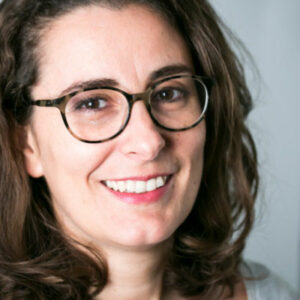
Clara Bosco

Naro A.
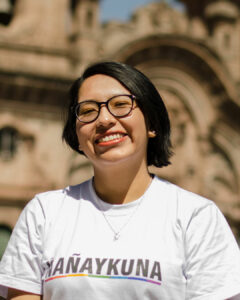
Banesa Farfan
